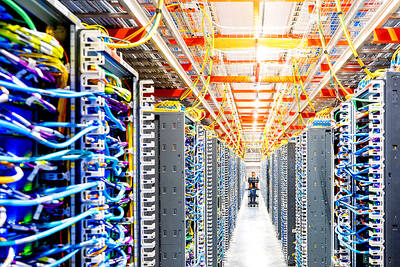Elitegroup Computer System Co (
"Intel has chosen us to supply motherboards. The deal is simple as Intel wants a supplier with ample supplies to forge a long-term relationship," said an Elitegroup official who spoke on condition of anonymity.
Both companies held a press conference in Beijing yesterday to announce the partnership, the official said.
"Internet cafes are hot and they bring up the PC demand there," the official added.
Currently, there are over 120,000 Internet cafes in China that are officially registered with the government. That translates to a market demand for 8 million desktop computers, the Chinese-language Economic Daily News reported yesterday.
The desktop figure could reach 10 million if unregistered cyber cafes were taken into account, it said.
The mushrooming number of the computer cafes has attracted the attention of chip makers Intel and Advanced Micro Devices Inc (AMD), as well as graphic chip designers Nvidia Corp and ATI Technologies Inc.
The paper quoted industry sources who said that because rival AMD's processors have acquired a 70 percent share of China's Internet cafe market, Intel is now aggressively striving to make up lost ground and increase its share to at least 50 percent.
Intel has been pushing its Platform Administration Technology, which is a platform solution for small-sized and medium-sized network environments such as Internet cafes. It hopes its solution will become the standard platform for Internet cafes in China.
But instead of using its own brand of motherboards this time, Intel has opted to use products made by Elitegroup to lower costs and boost competitiveness, the paper said.
According to Elitegroup's statistics, the company's total motherboard shipments stood at 5.6 million units in the second quarter, a rise of 21 percent from a year earlier.
Shipments for the first two months of the third quarter were slow but the company expects them to rise this month, it said.

Until US President Donald Trump’s return a year ago, when the EU talked about cutting economic dependency on foreign powers — it was understood to mean China, but now Brussels has US tech in its sights. As Trump ramps up his threats — from strong-arming Europe on trade to pushing to seize Greenland — concern has grown that the unpredictable leader could, should he so wish, plunge the bloc into digital darkness. Since Trump’s Greenland climbdown, top officials have stepped up warnings that the EU is dangerously exposed to geopolitical shocks and must work toward strategic independence — in defense, energy and

For the second year in a row, a Brazilian movie has wowed international audiences and critics, securing multiple Oscar nominations and drawing fresh interest in the Latin American giant’s film industry. Experts say the success of The Secret Agent, which has won four Oscar nominations, a year after I Am Still Here won Brazil its first Oscar, is no fluke, with a bit of a push from the country’s political climate. “This is neither a coincidence nor a miracle. It is the result of a lot of work, consistent policies, and, of course, talent,” Ilda Santiago, director of the Rio International Film

AI SPLURGE: The four major US tech companies have lost more than US$950 billion in value since releasing earnings and outlooks, while equipment makers were gaining Four of the biggest US technology companies together have forecast capital expenditures that would reach about US$650 billion this year — a flood of cash earmarked for new data centers and all the gear within them. The spending planned by Alphabet Inc, Amazon.com Inc, Meta Platforms Inc and Microsoft Corp, all in pursuit of dominance in the still-nascent market for artificial intelligence (AI) tools, is a boom without a parallel this century. Each of the companies’ estimates for this year is expected either near or surpass their budgets for the past three years combined. They would set a high-watermark for capital spending

IShowSpeed, a 21-year-old African-American influencer, has raced a cheetah, leapt with Maasai warriors and drawn huge crowds in a month-long tour of Africa that has also busted cliches about the continent. The YouTube and Twitch star’s tour, which started on Dec. 29 last year, took him to 20 countries, showing his tens of millions of followers a different side of Africa as he visited a diamond mine in Botswana, discovered Ethiopia’s rich cuisine and attended the Africa Cup of Nations football final in Morocco. IShowSpeed — born in Cincinnati, Ohio as Darren Jason Watkins Jr. — is one of the most followed